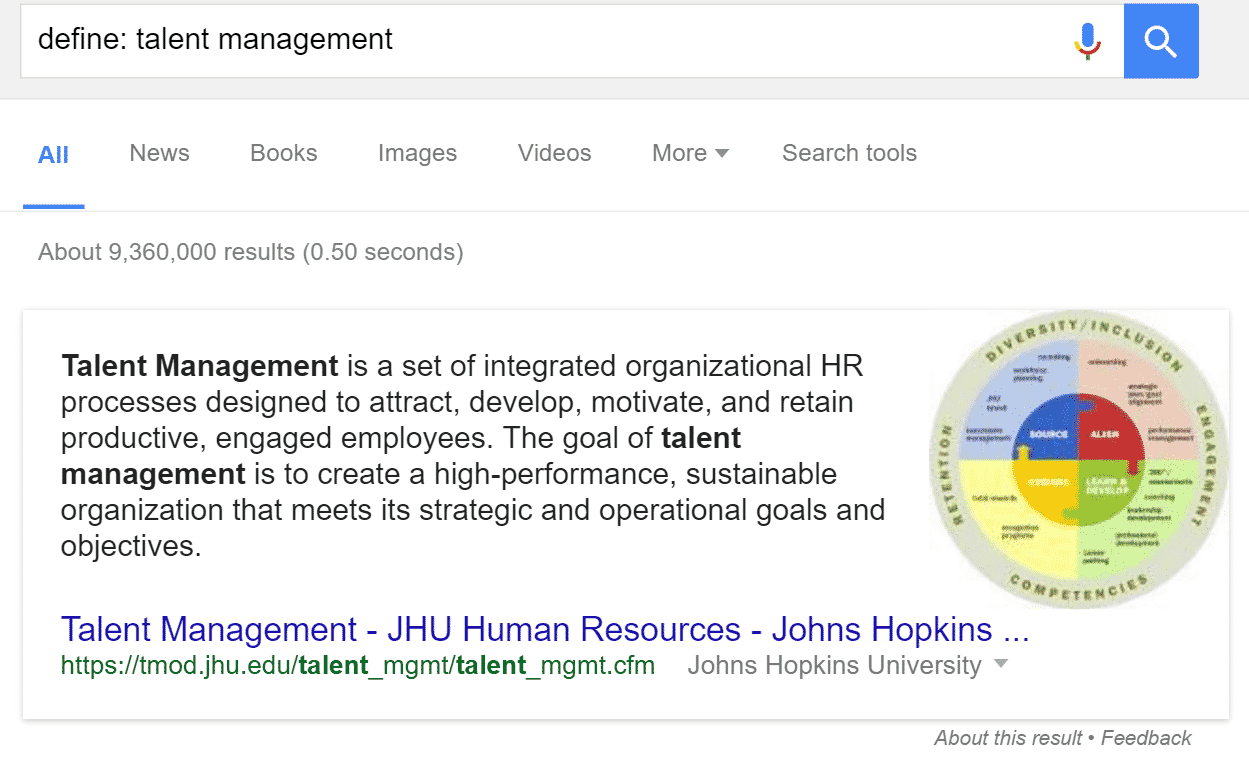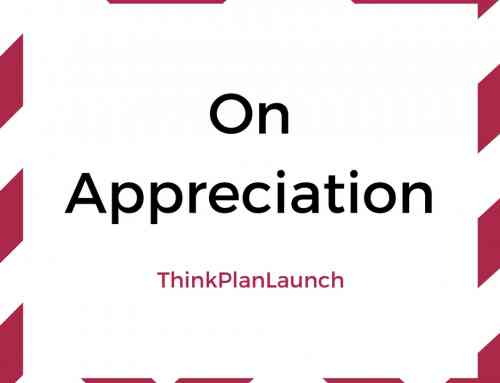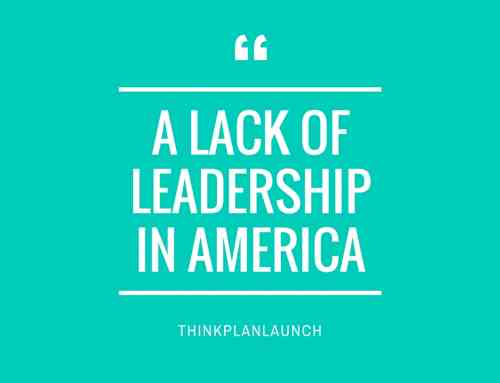Table of Contents
HR Professionals Aren’t Always Taken Seriously
Human Resources (HR) professionals aren’t always taken seriously. Whether it’s their boss (usually an executive), employees, or even job applicants – sometimes HR professionals are viewed as paper-pushers with little technical experience or ability.
But why? We’ll explore this common misconception in more detail throughout this article.
We are HR professionals ourselves here at ThinkPlanLaunch, so we understand the frustration of being misunderstood or prematurely dismissed as invaluable. Despite the science, research, and proven systems/tools we bring to the table, we too struggle sometimes to break past the prejudice of the uneducated and uninformed.
For example, one CFO sent me an email a few months ago asking if we invented the term Talent Management to “fool” people into thinking HR processes matter. He repeatedly referred to Talent Management as “psychobabble” and “pseudoscience.” His tone was clearly derogatory and dismissive.
Needless to say, this particular gentleman was probably low in Emotional Intelligence (EQ). But more importantly he appeared to be living under a rock, considering these terms have long been commonplace in HR and the business world. Besides, from a lexical standpoint isn’t Talent Management self-explanatory?
On the verge of sounding derogatory myself, let me state the obvious: anyone capable of using a computer can perform the following Google search for Talent Management in two seconds:
The top result shown is from Johns Hopkins University. Of course, it’s hard to imagine an institution like Johns Hopkins would have a dedicated talent management section on their website, if talent management itself wasn’t a thing.
Frankly, the fact any executive doesn’t know what talent management means in 2016 is astounding. And ironically, it only reinforces how much human capital matters. After all, the attitudes, behaviors, and intelligence of executives affect organizational performance in a significant way.
Investors, board members, employees, and fellow executives should have high expectations of their executive team. No executive should be this far behind the eight ball on critical management matters. American businesses lose billions of dollars every year from poor management practices. Any company seeking to maximize its profits needs leaders who are committed to getting it right.
But before I turn this into an article on why business executives aren’t always taken seriously, let me get back on track – because for all of our grievances as HR professionals, we too have a laundry list of embarrassing things to clean up if we’re to be taken seriously ourselves.
Four Reasons HR Professionals Aren’t Taken Seriously
1. We hire people using processes proven to be useless and outdated. (Lack of innovation)
When organizations like Google invest in completely redesigning their hiring process, we might be smart to ask “Why?”
In his book, Are You Smart Enough to Work at Google, author William Poundstone explains how decades worth of data proves traditional resume screening and interview techniques are useless. He describes how it’s the “deep, dark secret of HR that nobody really knows what they’re doing.” How we continue doing what we’ve always done, despite all the evidence pointing to it being ineffective and outdated.
Worst of all, this data has been around for a long time now. We have known since the 1950’s and 1960’s that interviews simply don’t work – that they are no more predictive than a coin toss! That’s right – unless you are bestowed with superhuman powers, personal biases and limitations mean you’ll never do better than 50/50.
Yet how many companies continue to rely on the interview as their primary qualification tool? It’s complete madness. Until HR professionals start demanding science-backed hiring solutions with real data behind them, it’s hard to imagine they will be taken seriously by people in the know.
2. Our people skills and communication abilities suck – despite working in HR. (Hypocritical)
As HR professionals we are expected to have some level of skill in dealing with people. This means things like communication skills, leadership ability, and emotional intelligence.
But let’s be honest – for all the employee development seminars we send our people to attend, how many do we attend ourselves? Are our communication and people skills really up to par? Certainly many HR professionals do have well-developed skills in these areas, but so too there are many who don’t.
Furthermore, many in this latter group (and even many in the former) have never taken the time to measure, assess, and analyze their areas of improvement. This signals a lack of commitment to growth and development in a key area required for proper job execution.
HR jobs revolve around communicating, coordinating, delivering feedback, and handling sensitive matters, so it only makes sense that HR professionals should be deeply invested in improving these skills. After all, it’s hard to ask your employees to invest in themselves if you’re not doing the same yourself.
3. We’d rather cover our butts than admit we don’t know what we’re doing. (Stunted learning/growth)
Returning to what William Poundstone said in Are You Smart Enough to Work at Google, let’s recall that it’s the “deep, dark secret of HR” that nobody knows what’s going on – how to move the needle. But even worse than this lack of knowledge and understanding is how some of us choose to handle it.
Instead of acknowledging our need for further development and growth, we may go on the defensive for fear that our heads will be on the chopping block if we are “discovered” – if someone above us figures out that we’re more or less inept. And while this may well be true, we obviously can’t bury our heads in the sand forever.
Sooner or later, if we don’t stay abreast of industry trends and emergent methodologies for HR optimization, we are all but guaranteed to become useless. In the long run, it’s far less risky to admit there’s a knowledge gap and take steps to close it – versus staying quiet and hoping you can keep your secret buried under the rug.
4. We have no clue how to really motivate employees. (Poor leadership ability)
In a job that revolves around recruiting, selecting, and engaging people in the workforce, it’s only logical to think HR professionals should be highly committed to understand what motivates people.
I do believe most HR professionals have the best of intentions in this regard. Unfortunately, intent is not the same as knowledge or skill though.
Many HR professionals (and executives, managers, and supervisors for that matter) fail to motivate because they focus exclusively on extrinsic motivation. Extrinsic motivation refers to external factors that drive a person, such as salary, employee benefits, or public recognition and awards.
This is problematic for two big reasons.
First, intrinsic motivation is equally important, if not more important than extrinsic motivation. Intrinsic motivation refers to internal factors that drive a person, such as passions, interests, and personal goals. It’s easy enough to intuit how an individual’s level of engagement and productivity correlate with intrinsic motivation.
Hence the importance of measuring and understanding the intrinsic motivators of your employees, to learn how to best utilize their talents, structure their workloads, and communicate with them effectively. Not to mention screening for intrinsic motivation during the selection process to be certain the right people are getting plugged into the right jobs.
The consequences of ignoring these hard-wired motivational factors are slack, disengagement, attitude problems, low productivity, and ultimately turnover. Projects take longer to complete and are done with less quality and care. Bottom line, your bottom line suffers in a very real and measurable way.
Second, research shows offering external rewards for behaviors that are already internally rewarding can actually reduce a person’s intrinsic motivation. This is known as the overjustification effect.
The implications of the overjustification effect are critical. All those fancy flexible benefits programs, employee wellness/morale events, and kegs of beer in the office (well, at some modern startups anyways) may be doing more harm than good.
Let’s break this down in even more detail:
Extrinsic rewards work best for people who normally find work tasks rote, boring, or dull – people who are not intrinsically motivated to do them. Thus your extrinsic motivation programs may in fact be of some use, but they are useful only for those people who are not properly matched to their jobs in the first place.
By contrast, the people who you really want to keep – the ones who are matched properly, because their intrinsic motivation matches their job duties – are those who will become demotivated at the hand of extrinsic motivators.
In the long run, then, focusing on extrinsic motivation causes would-be top performers to disengage and move onto green pastures – while simultaneously working to keep the wrong people (those who aren’t intrinsically motivated to do their jobs) around even longer. This is an absolute worst-case scenario no matter how you cut it.
The good news is, you can give a simple motivational assessment to your current employees and job candidates – putting an end to this nonsense once and for all.
You can find and hire the right people the first time, and train your management team to communicate with all employees, and structure their workloads, in ways that leverage their intrinsic motivation and foster a culture of growth, creativity, and high performance.
Conclusion
This article may on its surface appear to be somewhat antagonistic – and in fact, it’s meant to be (in the most polite of ways, of course)! Getting this stuff right is essential for high organizational performance, and as an added bonus, also benefits the individual HR administrator who implements effective talent management processes.
Everybody wins when we use effective, proven processes for managing our human capital – when we are committed to helping our people perform their best, and when we communicate with them in ways that unlock their potential instead of diminish it. There is simply no excuse to not learn and understand what really works, and then implement those things in the workplace.
It may not always be easy to get top executives on board with changing existing processes, but it’s our responsibility to fight for improved results – for the sake of those executives, for our own sake, and for that of our employees, investors, board members, and clients.





I appreciate the information you stated here. More power to your blogging career!